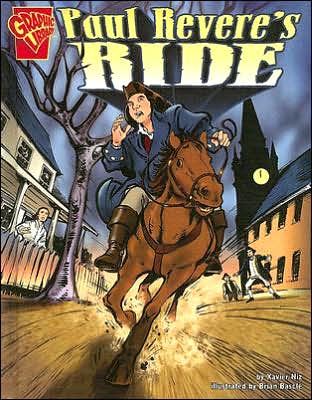
Paul Revere (bap. January 1, 1735 [O.S. December 22, 1734] – May 10, 1818) was an American silversmith and a patriot in the American Revolution.
He was celebrated after his death for his role as a messenger in the battles of Lexington and Concord, and Revere's name and his "midnight ride" are well-known in the United States as a patriotic symbol. In his lifetime, Revere was a prosperous and prominent Boston craftsman, who helped organize an intelligence and alarm system to keep watch on the British military.
Revere later served as an officer in the Penobscot Expedition, one of the most disastrous campaigns of the American Revolutionary War, a role for which he was later exonerated. After the war, he was early to recognize the potential for large-scale manufacturing of metal.

















